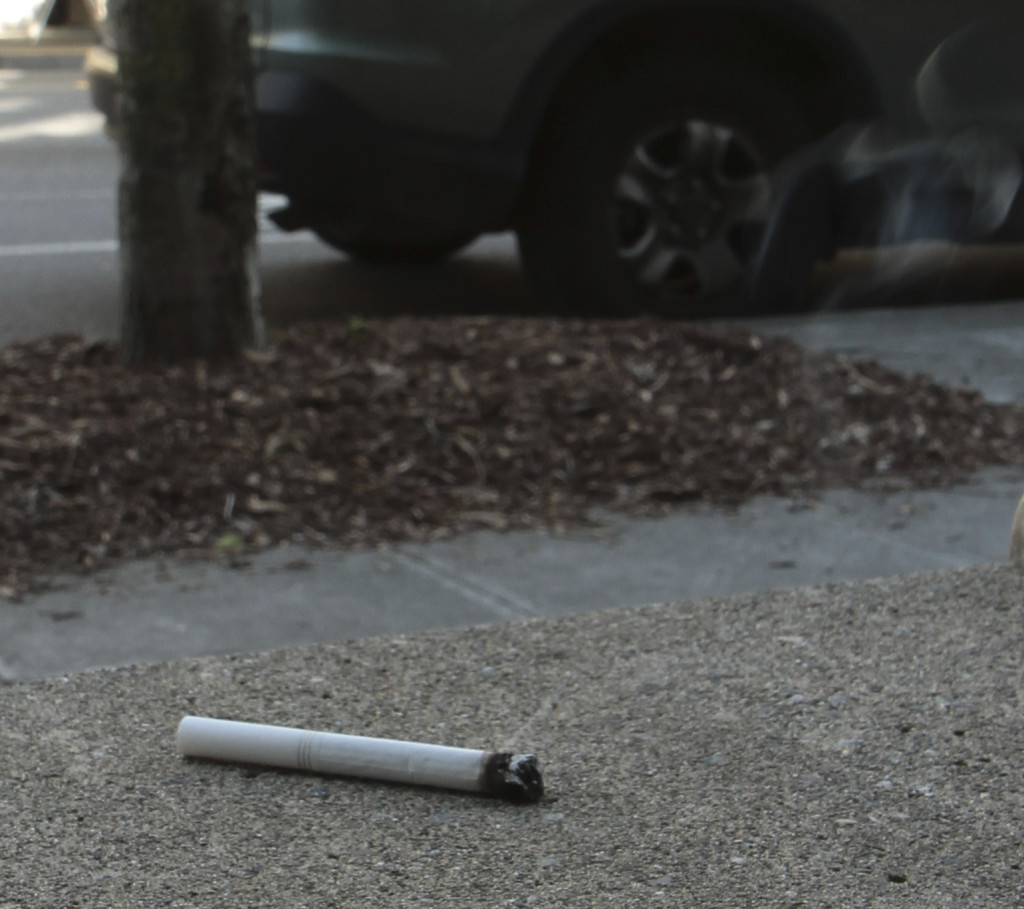“I like to smoke in the classroom.”
It should be a practice to “split the classroom up,” segregating smokers from nonsmokers.
“A smoker also has rights.”
“If I’m sitting there breathing the smoke, I might as well be smoking too.”

While smoking on campus has been a hotly debated topic, SGSU has decided to allow the student population to make the decision on whether or not smoking should be banned.
These were the various comments of students and faculty on the Seattle University campus in October, 1975, when the school was debating whether or not to ban smoking in the classroom, published in an archived copy of The Spectator.
Smoking is, for any unaware, now prohibited in Seattle U classrooms.
Things have changed some since the era of peace and love, but it appears history is repeating itself today, nearly 40 years later. In recent years, the campus has been debating banning smoking from campus completely. For a while it appeared to be a priority for SGSU, though governmental enthusiasm for the project seems to wax and wane.
The idea was intially introduced last year. Some were enthusiastic about the possibility of banning smoking, while others were fuming.
SGSU launched the Tobacco Free Campus Exploration Committee (TFCEC) at that time, which aimed to explore “the possibility of transitioning to a tobacco free campus and to promote transparency through the process,” according to a presentation put together by Austin Kawano, the chair of the committee and an at-large representative.
At the end of the last academic year, the Seattle U campus saw a bit of an uproar surrounding the TFCEC’s efforts, from both highly supportive and highly opposed voices. The exploration seemed to provoke strong opinions, in relatively small numbers.
The committee fell off the map when summer interrupted the process, but remaining members reunited at the beginning of fall quarter this year to reopen the discussion.
This year, SGSU President Eric Chalmers and Kawano plan to amp up the publicity in order to inspire more of the student body to voice their opinions, and thus get a more accurate read on what action should be taken.
Chalmers shared plans for the upcoming State of the Student Survey, revamped to better fit the needs of different types of students on campus. SGSU is charged with producing the survey, which will present a variety of different issues for student feedback, one being the tobacco free campus initiative. The survey will be administered to undergraduates in the second week of January.
Chalmers encourages students to see the State of the Undergraduate Student Survey as a ballot of sorts, as it will have a significant impact on the final decision made in the tobacco free campus exploration. According to Chalmers, it is very likely that the Tobacco Free Campus will be on the spring ballot.
In last year’s State of the Student responses, Chalmers yielded the results they saw seemed to support going tobacco free, but also that he’d been informed that the sample size wasn’t statistically significant.
The Student Bar Association (SBA) will be making a similar effort to make sure the law students’ voices are heard as the TFCEC moves forward. Law school graduate students have been particularly outspoken about maintaining smoking areas on campus.
According to SBA President Rochelle Nelson, they will be doing their own survey to ask for submissions of comments. Nelson has already posted on social media sites and spoken up in her classes to ask graduate students to email her with their thoughts about the exploration. She reported receiving, in less than 24 hours, at least 40 emails, most of which were strongly opposed to Seattle U’s campus going tobacco free.
Both SBA President Nelson and SBA Alumni Representative Allie Rissi agree that there exists a safety concern with sending smokers off campus where it is potentially dangerous, especially at night.
While SBA leaders Nelson and Rissi may not be having as much trouble provoking responses from their respective student body, they do hope that undergraduate students will get more involved in the debate, as they think SGSU’s apparent impression that the initiative is unanimously supported conflicts with what they are seeing from most law students. They stress that they are not necessarily pro-smokers, but rather “pro-reasonableness.”
The concern is rooted in the evidence so far that the majority of graduate students do not support the idea of our campus going tobacco free. Common themes amongst graduate responses have been a lack of necessity, a shortage of respect towards otherwise respectful smokers, misplaced entitlement to action, and a popular belief that going tobacco free on campus would create more problems than it would solve. Nelson equates the TFCEC to being “a hammer for a fly.”








